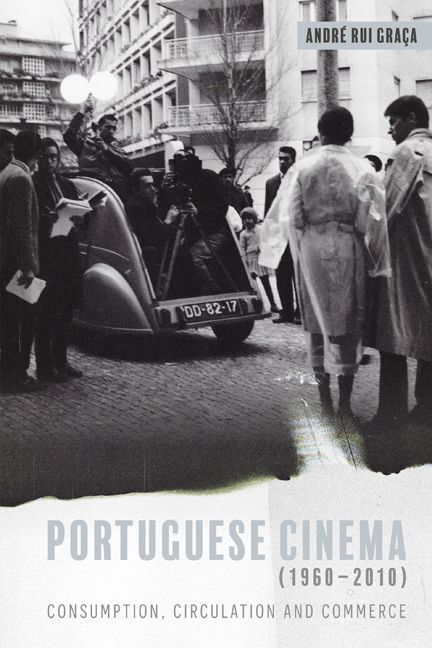Book contents
- Frontmatter
- Contents
- List of Illustrations
- Foreword
- Preface
- List of Abbreviations
- Introduction
- 1 The ‘Unsuccess’ of a National Cinema
- 2 Spectators and Contrasts in Culture
- 3 Visibility, Artistic Prestige, and Circulation
- 4 Portuguese Cinema Laws (1971–2006)
- Conclusion
- Appendix 1
- Appendix 2
- Bibliography
- Index
- Frontmatter
- Contents
- List of Illustrations
- Foreword
- Preface
- List of Abbreviations
- Introduction
- 1 The ‘Unsuccess’ of a National Cinema
- 2 Spectators and Contrasts in Culture
- 3 Visibility, Artistic Prestige, and Circulation
- 4 Portuguese Cinema Laws (1971–2006)
- Conclusion
- Appendix 1
- Appendix 2
- Bibliography
- Index
Summary
‘Slow, in the moonlight outside in the slow night, the wind stirs things that cast shadows while moving’.
The Book of Disquiet – Fernando Pessoa‘In this country filmmaking is an act of faith.’
O Rio do Ouro – Paulo RochaAs Fernando Pessoa's epigraph suggests, there is something about the status and spectral presence of Portuguese cinema that inevitably stirs one's curiosity; there is a somewhat disquieting doubt that persists about its mysterious absence, about a practice that is there without actually being clearly visible, and that is while it is not. Consistent with the argument so far, Portuguese cinema was a play of light and shadow, in both literal and figurative senses. This seems to be one of those cases in which absence acquires the inverse proportion of presence, and of which Vargas, Spivak, and Santos have been telling us. In other words, if on the one hand the very presence – the physical existence and cultural impact that should provide the raison d’être for the objects – and visibility of Portuguese cinema is ‘difficult’, on the other hand its invisibility is rather conspicuous.
Although Camus and Sartre taught us the importance of not overlooking the roles of chance and the absurd in daily life, it would be naïve to believe that the absence of Portuguese cinema was the fruit of fortuitous events. The economic circumstance of Portuguese cinema described in the introductory chapter and then explored throughout this book can be explained in great part by the modes of production of Portuguese cinema and elements related to consumption habits and market trends.
It is worth underlining once again that from the impetus behind this book was the need to address an observable, real-life problem (the ‘unsuccess’ of the Portuguese film industry) about which very little was known or had not been formally analysed. Indeed, the idea behind this investigation was to complement studies on Portuguese cinema by tackling it as a material and commercial phenomenon. Besides providing a study of the legislation affecting Portuguese cinema, this book's ‘angle of attack’ has also relied on a new statistical analysis of screenings, viewings, and admissions of Portuguese film both in Portugal and abroad either by bringing together disperse figures or producing them directly.
- Type
- Chapter
- Information
- Portuguese Cinema (1960–2010)Consumption, Circulation and Commerce, pp. 207 - 212Publisher: Boydell & BrewerPrint publication year: 2021



